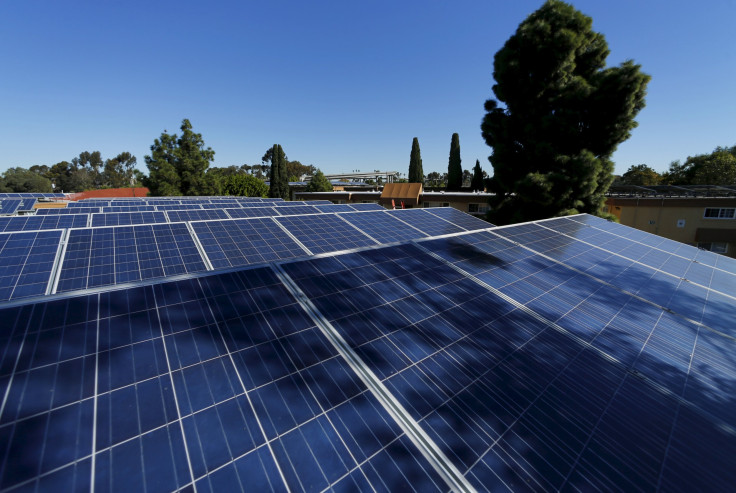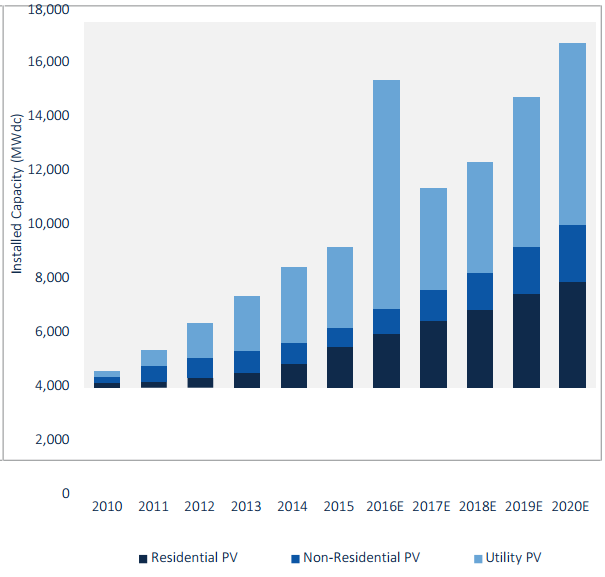Solar Power Growth In US Expected To Accelerate In 2016, Companies To Add 16 GW Of New Panels

In a report that further attests to solar energy’s bright future in the U.S., GTM Research and the Solar Energy Industries Association (SEIA) forecast that the industry would grow at a staggering pace of 119 percent in 2016, far outpacing last year’s 17 percent growth. Incentivized by plunging costs of photovoltaic panels, the U.S. solar industry added an estimated 7.3 gigawatts of new PV projects last year, and, in 2016, this number is expected to more than double to 16 GW.
“This is a new energy paradigm and the solar industry officially has a seat at the table with the largest energy producers,” SEIA president and CEO Rhone Resch said in a statement accompanying the report. “Because of the strong demand for solar energy nationwide ... hundreds of thousands of well-paying solar jobs will be added in the next few years benefiting both America’s economy and the environment.”

Large utility-scale projects will account for nearly three-fourths the percent of new installations in 2016, adding 12 GW, the report predicted. That’s nearly three times the 4.2 GW added in 2015, and is much more optimistic than the Energy Information Administration’s forecast of 9.5 GW for this year.
Meanwhile, residential PV installations, which grew 66 percent during 2015 from 2014, will add another 2.8 GW this year.
By 2020, the SEIA expects sunlight to generate as much as 3.5 percent of the country’s electricity.
“As the double-digit gigawatt utility PV pipeline is built out in 2016, utility solar is expected to experience a reset in 2017,” GTM Research Senior Analyst Cory Honeyman said in the statement. “But between 2018 and 2020, the extension of the ITC [investment tax credit] will reboot market growth for utility PV and support continued growth in distributed solar as a growing number of states reach grid parity.”
In the months leading up to 2016, solar utility companies rushed to finish a record number of projects to take advantage of a 30 percent ITC that was originally set to expire at the end of the year. However, in December, Congress voted to extend the program through 2019.
© Copyright IBTimes 2024. All rights reserved.






















